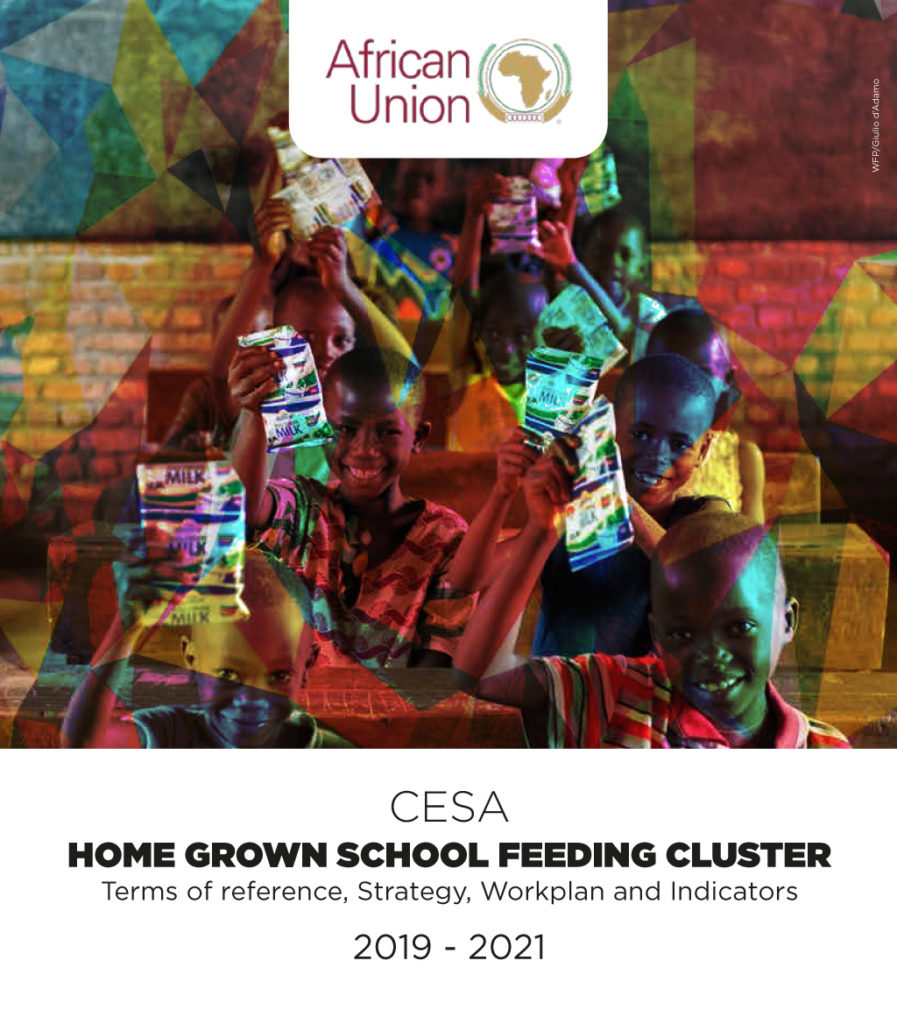
The strategy for the African school feeding cluster is now available. The African Union, with support from the WFP Centre of Excellence against Hunger, has prepared the basic documents that will guide the work of the CESA Home-Grown School Feeding Cluster. A new publication presents the terms of reference, the strategy, the workplan, and the indicators of the cluster’s initiatives to promote school feeding as an essential tool to improve education and broad development goals.
The African Union has adopted the Continental Education Strategy for Africa 2016-2025 (CESA) as an initiative to advance the African Agenda 2063, which stablishes development goals for the continent until 2063. The CESA is in line with the Sustainable Development Goal 4, Quality Education, with focus specific priorities for African countries. One of its objectives is promoting a healthy and conducive learning environment for all, and African leaders have identified home-grown school feeding as a means to achieve this objective.
After a visit to Brazil in 2015, and inspired by the Brazilian school feeding experience, the African Heads of State decided to invest in school feeding as an opportunity to advance education, boost local economies, promote smallholder agriculture, and pursue the Sustainable Development Goals. School feeding is also part of the continental plans to improve nutrition, and the African Union counts on the technical support provided by the WFP Centre of Excellence to advance this agenda in the continent.
The African Union Commission created thematic clusters to implement specific CESA objectives, such as Education Planning and Peace and Education, and School Feeding is one of them. “Clustering under specific thematic areas has been identified as an effective tool for enhancing coordination, strengthening partnerships, and linking knowledge, policy and practice around common themes and policy issues”, states the school feeding cluster publication. The cluster mechanism acts as an African Union forum to align stakeholders around strategic issues.
The school feeding cluster was launched in 2017 by the African Union, and among its members are the WFP Centre of Excellence in Brazil, the WFP Africa Office, FAO, UNESCO, and UNICEF. The cluster has the mission to improve the educational access and outcomes and the nutritional and health status of school children by enabling coordination and knowledge exchange mechanisms of home-grown school feeding programmes. The goal is to create well education and food secure citizens to promote development throughout the continent.
To do that, the cluster has five priorities: policy and legal framework; coordination; knowledge management, monitoring and evaluation, accountability and learning; strengthening and building capacity; and advocacy for political commitment and resource mobilization. Cluster members will pursue these priorities under the leadership of the commissioner of Human Resources, Science and Technology of the African Union, professor Dr. Sarah Anyang, and the head of the Education Division, Dr. Beatrice Njenga.
Download the publication to learn more about the CESA Home-Grown School Feeding Cluster.




